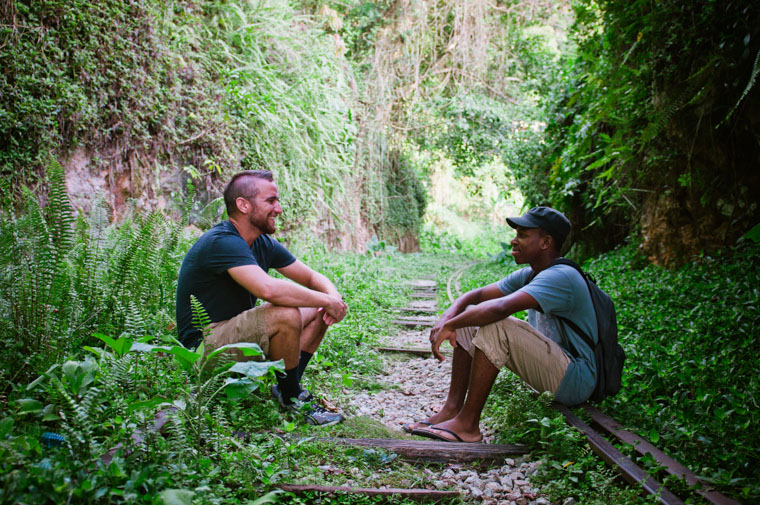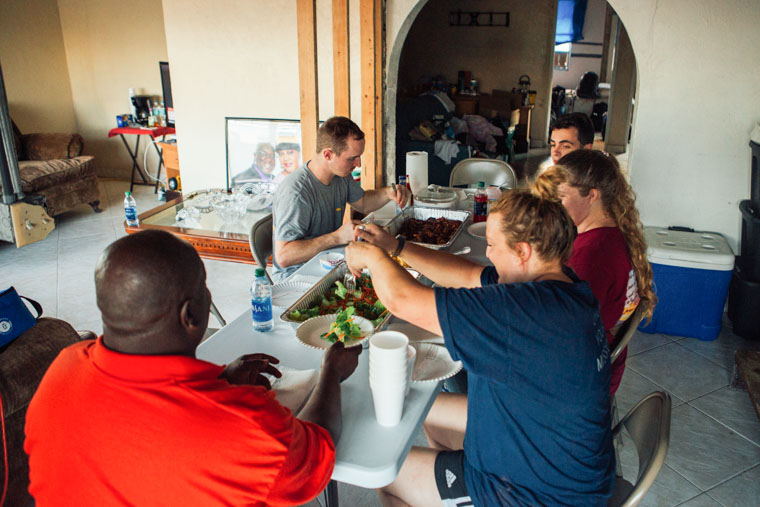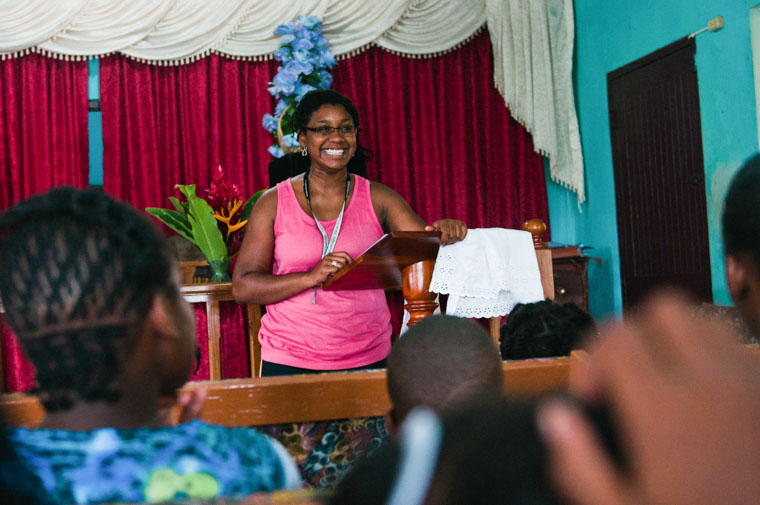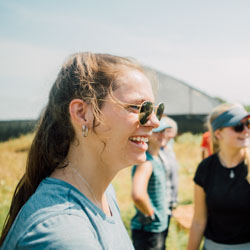
Since this question could be interpreted in several different ways, we have you covered no matter how you ended up here! If you’re looking for a simple how-to about participating in mission trips, check out How to Go on a Mission Trip. If you’re looking for a definition of the ins and outs of "Christian travel" check out What to Know about Christian Travel. If you’re looking for how to live and be as a Christian volunteer abroad in the world, the 4-part how-to guide below is for you.

1. How to be a Christian anywhere
In response to Jesus’ life, death, and resurrection, our role as his followers is first and foremost to spend our life answering the question, “How then shall I live?” This means taking seriously our calling as disciples of Jesus—followers, apprentices, those seeking to be like him—and doing our best to live this out in practical, everyday ways.
A good starting point? Asking God to change our hearts, so that we begin to see all people as "my neighbor", unique image-bearers of the divine nature, created in the image of God, worthy of love, respect, and attention. When we draw close to God, he changes us from the inside out and the "Fruit of the Spirit" show up in our daily lives, and we begin to take a posture of love, kindness, understanding, and humility with the people we meet.
It can also be tempting to forget that our primary allegiance is not to a city, state, or country, but to the Kingdom of God, the in-breaking of God into our world through a new family that encompasses people from every part of the world and every century in history. Remembering this allows us to stop looking inward and seeking to protect “our own.” Instead, we are able to look outward and live as a "kingdom of priests," helping those around us understand more fully who God is through how he continues to work in our lives by offering grace, forgiveness, and hope.

2. How to be a volunteer anywhere
We take our faith in Jesus with us everywhere we go, and hopefully, it colors everything we do. That includes each time we take on the role of a volunteer. With this in mind, there are a couple of things we would encourage you to consider as you give of your time to help others.
First, approach volunteering with people’s dignity in mind. Who are the people you’re coming to serve? How do you perceive them?
The idea of innate human dignity—that people with specific needs are created in God’s image and are no less valuable than anyone else—changes the way we serve others.
Approaching volunteer opportunities in this way is an act of resistance against a culture that sees our own needs and desires as paramount, as opposed to viewing others as more important than ourselves—each person worthy of love, respect, and opportunities to thrive.
Second, effective volunteering on mission trips or something similar requires that we leave the “savior” mentality behind. We often enter volunteer situations as the person with the least amount of background knowledge, experience, or sweat equity in seeing change happen in a specific context. We alone will not “save” anyone, but we can make a difference with our willingness to encourage and uplift those doing the work, day in and day out. We also signal what we actually care about when we come with open hands, ready to learn and give without expectations of receiving anything in return (including seeing the fruits of our labor firsthand). This is the kind of self-giving love Jesus modeled and taught that leads to true life.

3. How to be a traveler abroad
If you’re able to leave your home to experience a different place and culture, it’s important to remember that this privilege comes with great responsibility. As outsiders coming in, we are “guests in people’s homes,” entering the community, neighborhood, or actual home of people going about their daily lives. Just like an actual house guest, we are good travelers when we respect everything we encounter, engage in respectful and appreciative ways, and defer to the knowledge of our hosts. This can show up in the way you treat a hotel employee, city bus driver, or passerby who might help you with a question.
Another truth about traveling abroad is that experiencing new cultures changes us. This can be a wonderful experience that opens us up to a whole new way of seeing the world. But this change can also make us defensive about our way of doing things, causing conflict and negative thoughts to brew in our minds. Humans have a hard time dealing with things that are different, but as we encounter a diverse world, full of differences and unique perspectives, it’s important to remember that “different” does not mean “bad.” We always have something to learn when we travel abroad, and our approach to this sort of learning has the power to completely change how we feel about experiencing new things.

4. How to be a Christian Volunteer Abroad
Being a follower of Jesus Christ who volunteers abroad means understanding what a privilege it is to be able to travel and experience new cultures around the world, especially while also being able to build others up with your presence. As followers of Jesus, we take the call to "love our neighbor as ourselves" seriously, viewing all people we meet as holy and dearly loved children of God and treating them as such.
Ideally, Christian volunteers abroad are welcome house guests, who leave a lasting impression on the people they meet through their kindness, humility, and desire to give of themselves while also growing as a person.
If you have the opportunity to join Christian Volunteer Abroad trips or programs like group or individual mission trips, don't miss your chance to open your heart to the bigness, diversity, and beauty of God's world.
—
Join a Christian volunteer experience today! Bring your group on 1-2 week mission trips or apply to join a 1-9 month IMMERSION cross-cultural missions experience for young adults, age 18-30.
More Mission Stories


Site developed and hosted by Skycog, Inc.
